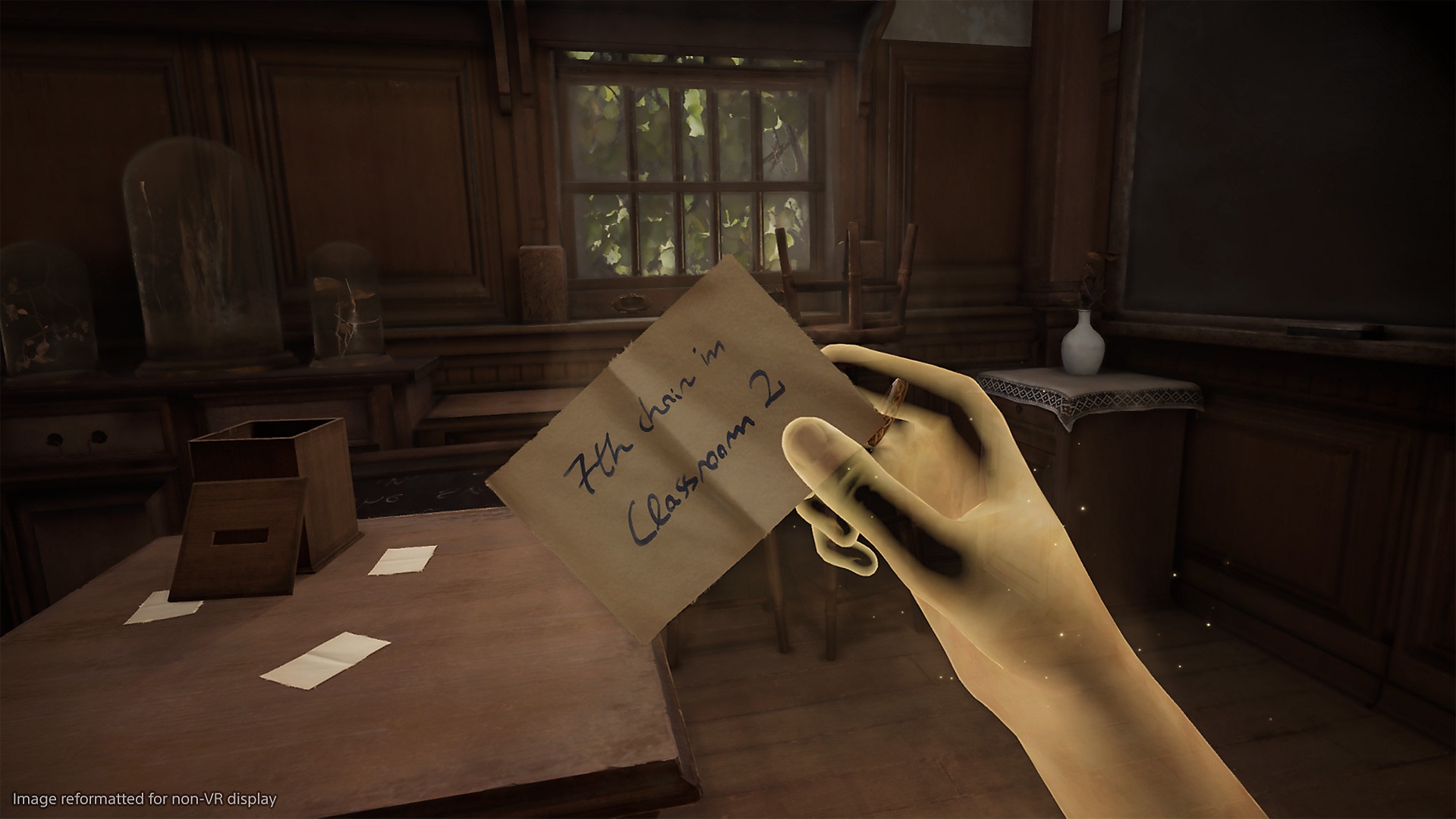Deracine, From Software’s VR debut, came out last week and I really, really like it. For From, it’s a typically weird but also fascinatingly experimental game. Most importantly, though, it feels like something that’s genuinely enhanced by VR, scratching at substance that will one day separate this medium from the rest. In my review, I tried to articulate that in the hopes that people might look past that most mundane of complaints: that the game doesn’t have smooth locomotion.
No such luck.
If there’s been one trend that’s been bothering me since the rise of consumer VR, it’s the increasingly dismissive attitude of a strand of ‘elite’ VR gamers that stubbornly refuse to buy anything that doesn’t include the ability to freely walk around. Many VR games feature a teleportation system that helps people who get motion sickness keep their food in their stomachs, but it admittedly doesn’t always provide the most immersive experience. Some games also offer a movement mode more recognizable to traditional gamers which probably won’t be comfortable for a lot of players. For some, it’s the closest some can get to being fully immersed in home-based VR right now, though it’s far from seamless.
It doesn’t matter how much spit n’ shine you’ve put into the rest of the game; if you haven’t included this one feature, your guaranteed online reaction is going to be a brick wall of navel-gazing snobbery.
This is, quite frankly, laughably counterproductive. I understand the desire for smooth locomotion in VR gaming; it’s my preferred choice when made available, but it’s rarely been a deal-breaker. In fact, I’d argue that only allowing you to visit set points makes Deracine a more focused, concise experience. There are instances where the opposite is true (I think PSVR’s Blood & Truth could definitely benefit from free movement, for example), but that doesn’t instantly outweigh all of the other positives that a game has going for it. We need to start honing in more on a developer’s successes irrespective of how we move around in their worlds.
Put yourself in From’s shoes. This is the developer of one of the most acclaimed action series in the gaming industry. It didn’t have to make Deracine; it could have just as easily devoted those efforts to speeding up the development of Sekiro: Shadows Die Twice and there’s a good chance it could have been better off for it. But you take a risk and you make something for this niche community that’s constantly calling out for bigger developers to make richer experiences on the platform.
You polish the game to a level of visuals rarely seen in VR and you work on engaging interactions with characters that just wouldn’t have the same impact on a standard screen. You might have even broken a little new ground. But the people that ‘care’ about VR don’t care about all of that, and they don’t care your game because you didn’t include this one feature. How silly are you?
If that was me? I wouldn’t exactly be in a rush to return to VR. Deracine brings innovation in connection and storytelling to the table in some really interesting ways. It’s upon that which it should be judged, not on if it lets you stand in every corner of the room or not.
Now put yourself in the shoes of an indie developer that doesn’t have the financial security of a big publishing deal. You’ve broken your back to get your VR game out there and spent your last dime on the bet that you might have the next Beat Saber on your hands. And, hey, maybe you do, but most people won’t know because, sorry, you didn’t include smooth locomotion. And now you don’t have to money to continue working on your game or a new project because everyone has their noses turned up until you’ve corrected this grievous error. Sorry; VR may be the future but not for you.
As is so often the case, there needs to be greater tolerance and understanding of developer-made decisions in the nascent VR industry. The demand for smooth locomotion in VR games may not need to change, but the attitude towards communicating that to developers definitely does. I’m not saying you need to flock to the store and buy every non-smooth locomotion game in sight, but perhaps take more time to weigh up the actual product in question. Do you love the mystique and ambiguity of a Souls game? Are you interested in how VR can connect you to NPCs in new, more powerful ways? Then you should absolutely be checking out Deracine, and you shouldn’t let a lack of freedom of movement stop you. If you decide you’d rather wait for a possible patch? Then fine; let the developers know in a respectful, appreciative fashion. That’s far more likely to yield better results than slamming the door in their face.
VR is a small industry and it needs all the help it can get. Blanket rejections of games from those bold enough to support it now based on the lack of semi-trivial features aren’t helping anyone.































